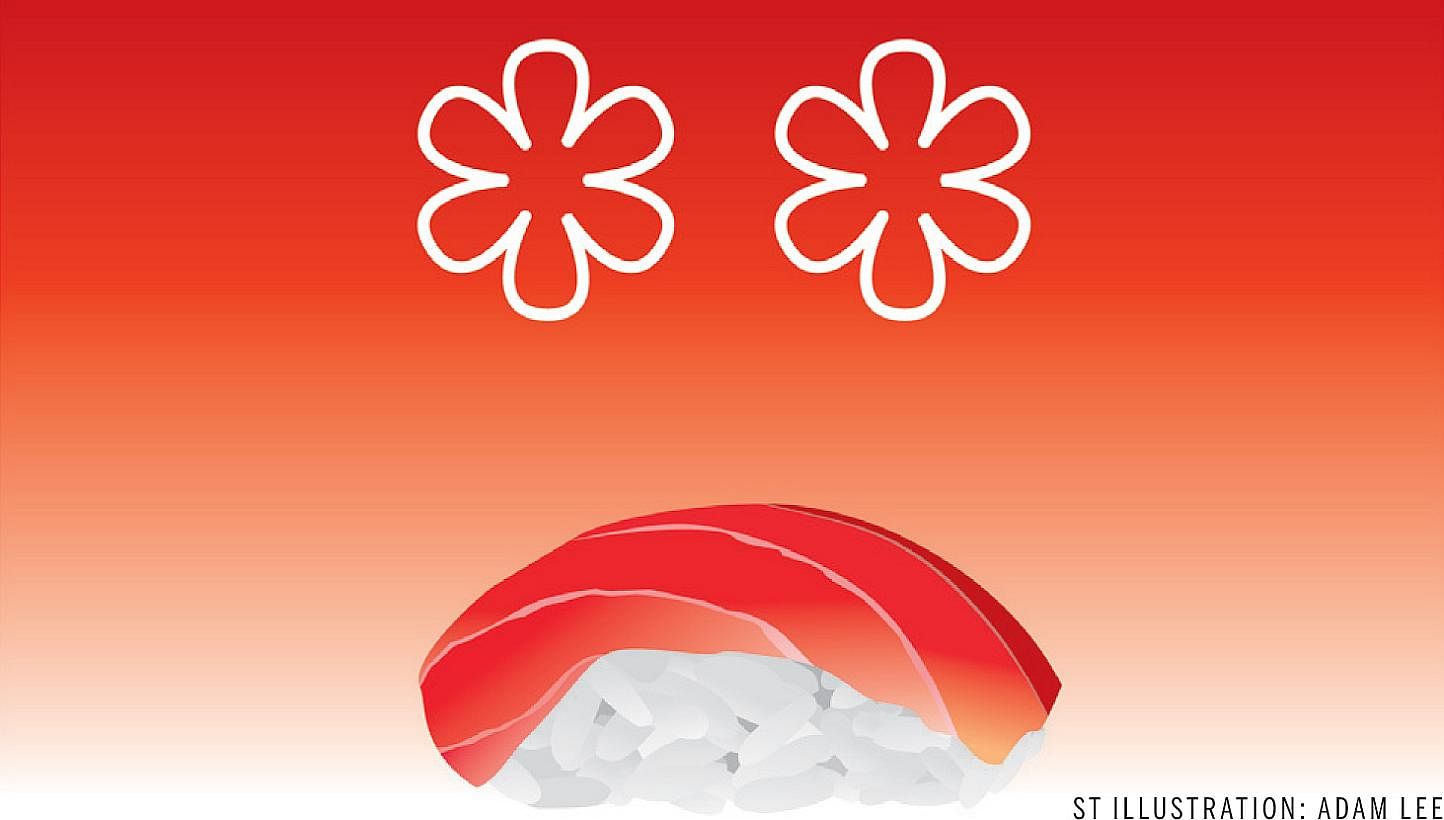So long Japan, thanks for the fish
Sign up now: Weekly recommendations for the best eats in town

Fiona Chan
One night towards the end of my two-year stay in Japan, my husband came home with the sweetest words he had ever said to me: "My colleague got us a reservation at Jiro."
"Yay!" I said, imagining not just the sumptuous sushi that awaited but also the delicious looks of envy from everyone who had ever visited Tokyo and expected us to snare them a seat at one of the city's most sought-after restaurants on a day's notice.
Then he went and spoilt it. "Don't get too excited," he warned. "It's not the main branch, it's the other one."
In other words, it wasn't Sukiyabashi Jiro Ginza, the three-Michelin-starred restaurant made famous in the documentary Jiro Dreams Of Sushi, but merely Sukiyabashi Jiro Roppongi, the two-star offshoot run by Jiro's son.
Even then, reservations were necessary and our meal would cost $400 a head - more than I had ever spent on monthly groceries, much less on a few pieces of fish.
For days leading up to our Big Dinner, I was the one dreaming of sushi. And Jiro Junior didn't disappoint.
In a city where virtually any sushi joint would rank in Singapore's top 10 Japanese restaurants, Sukiyabashi Jiro served up some of the most sublime sushi of my life.
All the standard fare - tuna, eel, sea urchin - was superb, but it was the chef's exquisite execution of less typically palatable fish - like bonito and sardine - that nearly brought tears to my eyes.
Or perhaps I was crying because the night's dinner was also one of the worst dining experiences I can remember.
At the start of the meal, one of my husband's Japanese colleagues told the chef she was allergic to fatty tuna and asked for it to be substituted with something else.
His response: "Nonsense."
If only it had stopped there. But Jiro Junior spent the hour-long meal lecturing her on her ignorance of sushi, casually including the rest of us in his castigation.
Didn't we know you can't be allergic to fatty tuna if you can eat other parts of the tuna? Didn't we know the difference between deep-ocean fish and shallow- ocean fish? Didn't we know this particular piece of sushi shouldn't be eaten with soya sauce?
With every fresh piece of sushi came a renewed tirade, too aggressively condescending to be entertaining. I was itching to tell the chef to stuff his perfectly vinegared rice into his own mouth and shut up, but I wasn't sure if that would be an even bigger breach of Japanese etiquette.
In the end, I tried not to get involved, which meant spending the dinner making eye contact with only my - admittedly magnificent - sushi.
Odd as it was, the Jiro dinner was remarkably reflective of my experience living in Japan. The country more than lives up to its reputation of having one of the highest standards of living in the world and in my two years there, I encountered extreme examples of excellence over and over again.
There was the clerk in my neighbourhood convenience store who once refused to sell me a bento because it was due to expire within the hour, even though I assured him repeatedly that I was going to go straight home and eat it in the next 10 minutes.
There was the property agent who spent 45 minutes showing us listings of apartments outside his assigned area and from which he had no hope of a commission ("Never mind, I have some free time," he told us).
As I learnt, it is not enough for the Japanese just to be competent at their jobs; they must devote themselves to delivering the best product or service possible. Not necessarily better than everyone else, but the best that they themselves can achieve.
It is no surprise that Tokyo boasts more Michelin-starred restaurants than any other city in the world. But the single-minded pursuit of excellence also permeates every stratum of society, down to the part-time flyer distributors who greet each new passer-by with the same unflaggingly cheery smile.
Yet this same excellence often went hand-in-hand with an unshakeable rigidity - and occasionally, as in the case of Jiro Junior, off-putting arrogance. Japan's cult of exceptionalism gives rise to superiority not only in service but sometimes in attitude.
I really wanted to eat that bento from the convenience store. And I couldn't understand why we were unable to give the kind property agent our commission when he was just doing his job well.
Back in Singapore, I now enjoy the languid flexibility of our culture, where service staff don't bother to articulate an extra noun if just the verb will do.
Still, like Lord Voldemort leaving parts of his soul scattered in different places, I find myself missing my daily encounters of Japanese discipline that both frustrated me and moved me to shame.
Excellence comes at a price, but perhaps mediocrity is even more costly.
So long, Japan - and thanks for all the fantastic fish.
fiochan@sph.com.sg

